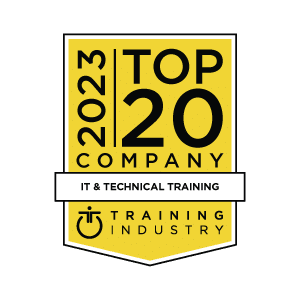Overview
This MS-101T00: Microsoft 365 Mobility and Security course covers three central elements of Microsoft 365 enterprise administration – Microsoft 365 security management, Microsoft 365 compliance management, and Microsoft 365 device management. In Microsoft 365 security management, you will examine all the common types of threat vectors and data breaches facing organizations today, and you will learn how Microsoft 365’s security solutions address these security threats. You will be introduced to the Microsoft Secure Score, as well as to Azure Active Directory Identity Protection. You will then learn how to manage the Microsoft 365 security services, including Exchange Online Protection, Advanced Threat Protection, Safe Attachments, and Safe Links. Finally, you will be introduced to the various reports that monitor your security health. You will then transition from security services to threat intelligence; specifically, using the Security Dashboard and Advanced Threat Analytics to stay ahead of potential security breaches.
With your Microsoft 365 security components now firmly in place, you will examine the key components of Microsoft 365 compliance management. This begins with an overview of all key aspects of data governance, including data archiving and retention, Information Rights Management, Secure Multipurpose Internet Mail Extension (S/MIME), Office 365 message encryption, and data loss prevention (DLP). You will then delve deeper into archiving and retention, paying particular attention to in-place records management in SharePoint, archiving and retention in Exchange, and Retention policies in the Security and Compliance Center.
Now that you understand the key aspects of data governance, you will examine how to implement them, including the building of ethical walls in Exchange Online, creating DLP policies from built-in templates, creating custom DLP policies, creating DLP policies to protect documents, and creating policy tips. You will then focus on managing data governance in Microsoft 365, including managing retention in email, troubleshooting retention policies and policy tips that fail, as well as troubleshooting sensitive data. You will then learn how to implement Azure Information Protection and Windows Information Protection. You will conclude this section by learning how to manage search and investigation, including searching for content in the Security and Compliance Center, auditing log investigations, and managing advanced eDiscovery.
The course concludes with an in-depth examination of Microsoft 365 device management. You will begin by planning for various aspects of device management, including preparing your Windows 10 devices for co-management. You will learn how to transition from Configuration Manager to Intune, and you will be introduced to the Microsoft Store for Business and Mobile Application Management. At this point, you will transition from planning to implementing device management; specifically, your Windows 10 deployment strategy. This includes learning how to implement Windows Autopilot, Windows Analytics, and Mobile Device Management (MDM). When examining MDM, you will learn how to deploy it, how to enroll devices to MDM, and how to manage device compliance.
Skills Covered
After completing this module, students will be able to:
- Microsoft 365 Security Metrics
- Microsoft 365 Security Services
- Microsoft 365 Threat Intelligence
- Data Governance in Microsoft 365
- Archiving and Retention in Office 365
- Data Governance in Microsoft 365 Intelligence
- Search and Investigations
- Device Management
- Windows 10 Deployment Strategies
- Mobile Device Management
Who Should Attend
This course is designed for persons who are aspiring to the Microsoft 365 Enterprise Admin role and have completed one of the Microsoft 365 role-based administrator certification paths.
This course along with MS-100T00-A – Microsoft 365 Identity and Services prepares you for the Microsoft 365 Certified: Enterprise Administrator Expert certification.
To attain this certification, you need to pass both the MS-100 and MS-101 exam. The MS-100 exam measures your ability to accomplish the following technical tasks: design and implement Microsoft 365 services; manage user identity and roles; manage access and authentication; and plan Office 365 workloads and applications and the MS-101 exam measures your ability to accomplish the following technical tasks: implement modern device services; implement Microsoft 365 security and threat management; and manage Microsoft 365 governance and compliance.
Course Curriculum
Prerequisites
- Completed a role-based administrator course such as Messaging, Teamwork, Security and Compliance, or Collaboration.
- A proficient understanding of DNS and basic functional experience with Microsoft 365 services.
- A proficient understanding of general IT practices.
The prerequisites above can be achieved via completion of the following associate level role-based administrator courses:
- MS-900T01: Microsoft 365 Fundamentals
- MS-203T00: Microsoft 365 Messaging
- MS-500T00: Microsoft 365 Security Administration
- MS-600T00: Building applications and solutions with Microsoft 365 Core Services
- MS-700T00: Managing Microsoft Teams
Course Modules
Exam & Certification
Microsoft 365 Certified: Enterprise Administrator Expert
This certification is aimed at Microsoft 365 administrators who are responsible for evaluating, planning, migrating, deploying, and managing M365 services.



